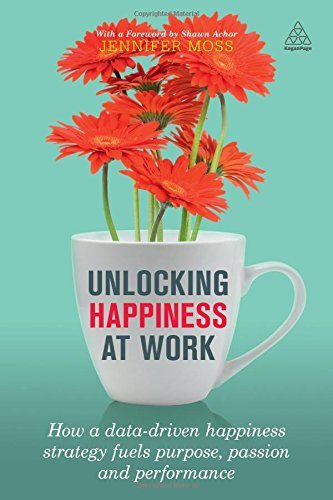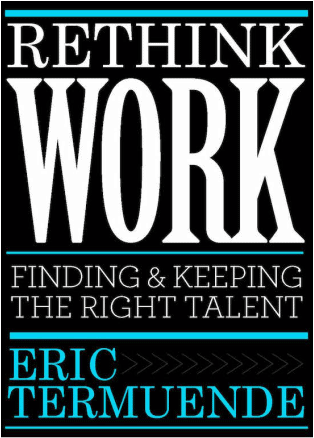Hot Holiday Reads
As November nears its close, our collective focus shifts towards the holiday season and gearing up for a productive and successful 2017. It’s a time of giving and unwinding, making books a favouriteseasonal indulgence. Here are excerpts and more information on some of the most-talked-about end-of-year releases*:

Workplace Leadership:
 Jennifer Moss | Unlocking Happiness at Work
Jennifer Moss | Unlocking Happiness at Work
Unlocking Happiness at Work is not your ordinary book. It masterfully takes the reader on a journey into why and how leaders should become compassionate capitalists to ensure that their teams thrive. 20 years of scientific research, real-time data, interviews and case studies, have proven that happiness fuels higher performance, provides a greater sense of purpose and spreads passion throughout organizations. This book debunks the myth that happiness at work is a waste of time and demonstrates how it can deliver a more productive and engaged workforce, which can have a real impact on the bottom line.
With insightful practical guidance throughout, Unlocking Happiness at Work is a lively and persuasive exploration of how to be happier and make others happier through the power of habits, emotional intelligence and an innovative approach to work/life flow. Case studies from Lululemon, Zappos, Misfit Inc, The Body Shop and more are supported by tangible data and key performance indicators that show the significant benefits that come from adopting a happiness strategy.
This is an essential resource for leaders who want to increase sustainability, attract new talent, improve their brand and boost profitability – in a way that is life-enhancing for them and their people.
Listen to an interview with Jennifer Moss on the book.
An Excerpt:
“Most people want to be happy. But, for many, Happiness feels elusive, disappointing, and unrealistic.
So what is my definition of happiness?
It’s intangible. It can’t be attained or achieved. You don’t chase it. It’s sequential. It comes after you work on building up traits life hope, efficacy, resilience, optimism, gratitude and empathy. Then, when those upstream habits are formed, you get a chance to see happiness when it’s in front of you. You get the chance to stop missing it when it flies by.
Why Write a book about happiness at work?
For one, so much of our life is consumed by work. We prepare ourselves in school to be readied for work, and then we spend almost three-quarters of our waking hours at work. I believe that time should be spent meaningfully.
Way too many of us will wonder why. Why can’t I find happiness at my job? Why can’t I find happiness with my family? Why can’t I find happiness with my friends? The answer is simpler than we think. However, because we’re humans, we complicate the efforts.
The good news is, though, that it is absolutely possible and well within reach.”
Get more information on Jennifer Moss.
Non-Fiction, Released: September 28, 2016
Publisher: KoganPage
 Eric Termuende | Rethink Work: Finding & Keeping the Right Talent
Eric Termuende | Rethink Work: Finding & Keeping the Right Talent
This book tackles one of the big problems employers face today: finding and keeping the best employees, especially at a time when young workers typically quit after only three years on the job. Rethink Work stands out from other books in this category because the author is one of those young people: Eric Termuende, a rising star on the international speaking circuit. Instead of relying on the well-tread but often misguided notions that emerge from surveys, Eric writes about the actual experiences of young people on the job. The result is a refreshing look at the workplace today. To keep the best employees, companies need to focus not on what they do, but how they do it, with whom they do it, and why. This will be the true differentiator for companies in the future. Eric’s advice is soothingly old fashioned. This young writer says it’s time to put away the devices, at least part of the time, and start talking face to face with other people in the office.
Eric’s advice is soothingly old fashioned. He says it’s time to put away the devices, at least part of the time, and start talking face to face with other people in the office. What young people want is a human connection, and when they have it, they will perform at a high level and stay loyal. This means treating people like the individuals they are, not as stereotypes—such as so-called Millennials, who are typically branded by their elders as being entitled. It means talking with each other, not texting.
An Excerpt:
“This does not mean that we have to change what we do. It does mean that to keep new hires, of any age, companies need to clearly define how people do their work, who they work with, and why. What comprises the life and experiences of those employees? Do they have the tools to do the best job possible, or is the employer still trying to control their Twitter feed? What kind of people work there? Is and introverted ‘numbers’ person being plunked into a wide-open room full of jovial salesmen who spend every night at the bar and then recount their exploits, in minute detail, the next morning? What is the purpose of the work being done? Does it make sense for a member of the Green Party who cycles to work to take that accounting job at a car company or an oil company? Why, for that matter, did that poli-sci grad who knows how to as good questions end up at a bank, which clearly wanted her to stick to the script?
Both sides need to be clear and honest in answering these questions. There is no point in faking it. New employees will figure out on day one, and they will eat up the company training budget before informing the employer, perhaps a week before that big presentation, that they have found a new job. Companies need to be realistic about the kind of working life they are offering employees and what the experience at work is. They do not necessarily have to change; they just need to be authentic about the particular working culture that defines their firm.”
Get more information on Eric Termuende.
Non-Fiction, Release: February 20, 2017 (available now for pre-order)
Publisher: Barlow Books
Mental Health:
 Lt. Gen. Roméo Dallaire (Ret) | Waiting for First Light: My Ongoing Battle with PTSD
Lt. Gen. Roméo Dallaire (Ret) | Waiting for First Light: My Ongoing Battle with PTSD
At the heart of Waiting for First Light is a no-holds-barred self-portrait of a top political and military figure whose nights are invaded by despair, but who at first light faces the day with the renewed desire to make a difference in the world. Roméo Dallaire, traumatized by witnessing genocide on an imponderable scale in Rwanda, reflects in these pages on the nature of PTSD and the impact of that deep wound on his life since 1994, and on how he motivates himself and others to humanitarian work despite his constant struggle. Though he had been a leader in peace and in war at all levels up to deputy commander of the Canadian Army, his PTSD led to his medical dismissal from the Canadian Forces in April 2000, a blow that almost killed him. But he crawled out of the hole he fell into after he had to take off the uniform, and he has been inspiring people to give their all to multiple missions ever since, from ending genocide to eradicating the use of child soldiers to revolutionizing officer training so that our soldiers can better deal with the muddy reality of modern conflict zones and to revolutionizing our thinking about the changing nature of conflict itself.
Listen to an interview with Gen. Dallaire on the Book
An Excerpt:
“I have already told my story of the Rwandan genocide. In Shake Hands with the Devil: The Failure of Humanity in Rwanda, and in speeches and presentations before and since that book was published, I explained what I saw. What I did. What I was unable to do. While I have not been silent about the injury I sustained in Rwanda, I have kept mostly private the effects of that injury on my mind, my body, my soul. Until now.
In this book, I describe how I came to live with an operational brain injury called post-traumatic stress disorder: PTSD. It is not an instruction manual on how to get better or an inspirational text of my triumph over adversity. After more than twenty years, I’m not “better,” any more than a solider whose leg was blown off is able to grow a new one. But as a soldier can adjust to this new reality–physically with prosthetics, crutches, a wheelchair; emotionally with professional, personal and peer support–so, too, have I learned how to cope, with some small victories and plenty of defeats.
Due to the nature of my injury–the resultant sleep deprivation, flashbacks, nightmares and emotional turmoil, plus the medications I must take to mitigate even worse effects and the manic pace of work I’ve undertaken as another way to cope–my memory has necessarily suffered. I cannot guarantee the absolute accuracy of every detail shared in this book. What I do promise is that these pages tell the true story of how I’ve felt and how I have perceived the world around me over the past twenty years, living under the pervasive and ever-present shadow of PTSD.”
Get more information on Lt. Gen. Roméo Dallaire.
Fiction, Released: October 25, 2016
Publisher: Random House
Culture:
 Joseph Boyden | Wenjack
Joseph Boyden | Wenjack
An Ojibwe boy runs away from a North Ontario Indian School, not realizing just how far away home is. Along the way, he’s followed by Manitous, spirits of the forest who comment on his plight, cajoling, taunting, and ultimately offering him a type of comfort on his difficult journey back to the place he was so brutally removed from. This is another powerful and poignant bestselling book by Giller Prize-winning author Joseph Boyden that is beautifully illustrated by acclaimed artist Ken Monkman.
An Excerpt:
“Tonight is the night they line us up and then we climb in the water tub, two, or three of us if we’re real skinny, and we have to wash the back of the one in front. Then we get out and Fish Belly rubs each of us with a wet towel. This means tomorrow is prayer day. I can tell which niijii, which friend, ran away from the school this week by the long red marks on his back. Ever a lot of red marks. Ever a lot of friends who ran away this week. But Fish Belly teacher has Fish Belly friends who go out and catch them. We have a secret path, but maybe it’s not so secret anymore. The Fish Bellies are good at catching Indian children. One day I will run. One day they won’t hurt me anymore.”
Acclaim:
“A profoundly sensitive writer with the eye of a painter and a heart as big as the country about which he writes.” –Frederick Barton
“Boyden is such a fine writer, evoking his characters’ emotions in a touching and understandable way.” –Toronto Star
Get more information on Joseph Boyden.
Fiction, Released: October 18, 2016
Publisher: Penguin

Check out our Bestselling Authors here. To find out more about how these speakers can bring the power of story to your event reach out to us.
*Book descriptions, excerpts and quotes courtesy publishers.
